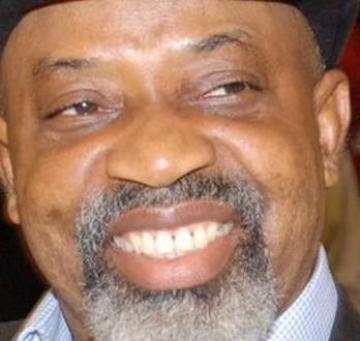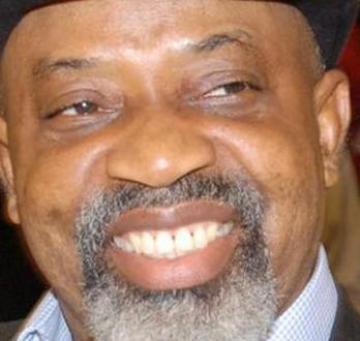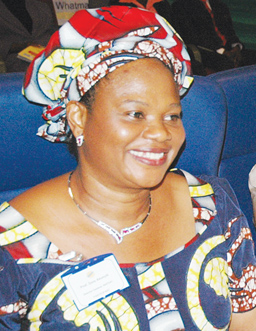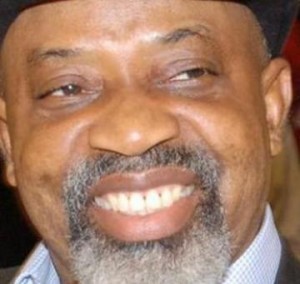Between Ngige and Akunyili – By Dr. Jideofor Adibe
Articles, Columnists, Jideofor Adibe, PhD, NNP Columnists Wednesday, April 27th, 2011By Dr. Jideofor Adibe, London, UK – April 26 – Anambra State has always been politically challenging, especially in the current political dispensation. In this sense, the controversial outcome of the April 9 National Assembly elections, which pitted former Governor Chris Ngige against former Information Minister Dora Akunyili in a dog fight essentially means that the State has once again managed to live up to its political notoriety.
At issue in the Ngige and Akunyili imbroglio is who represents the Anambra Central Senatorial district. After the election, the ‘original’ Returning Officer Alex Anene alleged that results from some areas were ‘mutilated’ and that he was being intimidated and financially induced by the State Government, which supports Professor Akunyili, to announce the ‘falsified’ results. Claiming that his life was in danger, Mr Anene ‘vamoosed’ only to re-appear after the Resident Electoral Commissioner for the State Professor Chukwuemeka Onukaogu had appointed his re-placement, Professor Esimole, who, almost immediately announced that the election between the two titans was inconclusive.
Several issues surround the election:
The April 9 Anambra Central Senatorial election was essentially a continuation of the bitterly fought February 2010 Governorship election in the State. In that election, Dora Akunyili, a PDP member and Information Minister at the time, was accused of playing uncertain roles in the outcome of that election, which favoured Governor Peter Obi, an APGA candidate, and which the likes of Andy Uba had described as ‘technical rigging’. Akunyili’s traducers claimed she went into an unholy alliance with Governor Obi in which she would help Peter Obi to win a re-election in return for the Governor ensuring that she succeeds him in 2014. When Akunyili resigned as Information Minister to run for a senate seat under APGA, the conspiracy theorists claimed vindication, especially given the manner in which she emerged as APGA candidate. Her emergence as the APGA candidate quickly coalesced the ‘aggrieved’ forces from the 2010 Governorship election just as it seemed to energise Governor Obi into proving that his declaration as the winner of the 2010 election was not a fluke.
Two, in presenting their sides of the story both Ngige and Akunyili have understandably sought to assume the moral high grounds. But there is nothing in their antecedents to suggest that they are incapable of lying, cheating or manipulating the political process. Ngige, we all know, admitted that he went to Okija shrine with his political godfather Chris Uba to swear an oath of allegiance to him. In the same vein, Professor Akunyili, despite her carefully cultivated image of a courageous woman, seems to be driven by blind ambition. While at NAFDAC for instance, she was said to have lobbied every ‘lobbyable’ to be made a Minister (the late Adedibu claimed she also lobbied him to lobby the late Yaradua on her behalf). She was also accused of lobbying the PDP to make her the ‘consensus’ candidate in the 2010 Governorship election in Anambra State – an accusation she never denied. Other positions she was said to have intensely lobbied for included being made INEC Chair Person and being a running mate to one of the presidential aspirants in the PDP. I am personally wary of people with vaulting ambition for as the Roman historian Sallust would say: “It is the nature of ambition to make men liars and cheats, and hide the truth in their breasts, and show, like jugglers, another thing in their mouths: to cut all friendships and enmities to the measure of their interest, and to make a good countenance without the help of a good will.”. Therefore to get to the truth of what really happened in the senatorial election, we must look beyond the attempts by these two actors to play the ostrich and look at the stakes in the election and the interests of the various gladiators, including Governor Peter Obi. The actors’ public personas should count for nothing here.
Three, the ‘original’ Returning Officer for the senatorial zone Alex Anene, together with the other officials of INEC in the State, including the Resident Electoral Commissioner Professor Chukwuemeka Onukaogu, must convince INEC beyond any reasonable doubt that they were not captives of any of the forces with vested interests in the outcome of the contest. There are several questions that beggar answers here: Though later news reports that two gun men ‘ransacked various offices’ at the Nnamdi Azikiwe University in search of Mr Anene after he announced the results would seem to corroborate his story that his life was in danger (which in turn could justify his going underground), we need to know what measures he took to intimate his superiors at INEC of his fears. The REC for Anambra State too has questions to answer: When Anene went into hiding, what measures did he take to find him? Did he offer him public assurances of protection before appointing his replacement? And did the newly appointed Returning Officer carry out any investigations before concluding that the elections were ‘inconclusive’ or was he merely appointed to act out a script, which Anene refused to act?
It should be recalled that in the 2009 re-run Governorship election in Ekiti State, the state’s REC Mrs Ayoka Adebayo also went into hiding, claiming, as Mr Anene did, that she was being pressured to announce results that her conscience would not permit her to announce. No one was appointed to replace her and even her letter of resignation from her hiding place was rejected. Coincidentally Professor Akunyili was part of a joint press conference called by then Inspector of Police Michael Okiro and then INEC Chairman Maurice Iwu in which Mrs Adebayo was given an ultimatum to report herself or face harsh consequences. Why was Anene not publicly assured of his safety or declared wanted as happened in Ekiti to ‘smoke’ him out of his hiding place
Four, while I commend Professor Jega’s decision to set up a committee to probe what really happened in that Senatorial election, I would have preferred he did not make this statement attributed to him when he called a press conference on the issue: “The Registration Officer absconded only to reappear after the Resident Electoral Commissioner had appointed his replacement who had declared the election inconclusive.” (Vanguard April 14, 2011). The judgmental tone of the statement could be misconstrued as bias.
Five, though under the law, only an election tribunal or court of law can overturn the declaration of Ngige as the Senator elect, findings from the committee will impact on the current battle between the duo in the court of public opinion. This battle will in turn affect the legitimacy or otherwise of the declaration of Ngige as the Senator elect.
The rehabilitation of the ‘professorate class’
One of the fallouts from the current election cycle could well be the rehabilitation of the ‘professorate class’. Jega used many Professors as Returning and Collation officers in the state. If the subtext was to show that men of integrity were used to oversee the elections, then an association between being a professor and having integrity may have been unwittingly created. Will this boost interest in academics?
The author could be reached at: pcjadibe@yahoo.comwp_posts
Related Posts
- Why the Hullaballoo About Nnamdi Kanu’s Release – By Tochukwu Ezukanma
- When Government Goes Rogue with Impunity – By Oseloka H. Obaze
- I Recommend the British Re-colonization of Nigeria – By Tochukwu Ezukanma
- Protests in Africa: A Decade of Turmoil and the Rising Wave of Unrest
- The Consolation in Trump’s Presidency – By Tochukwu Ezukanma
Short URL: https://newnigerianpolitics.com/?p=7611




































